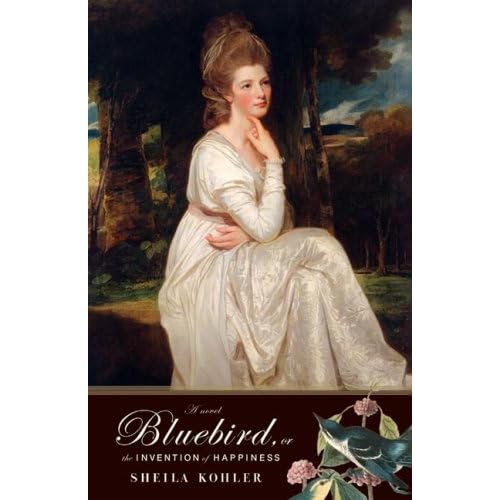



RSS: Blog FeedSubscribe to
Posts [Atom]
April 2007May 2007June 2007July 2007August 2007September 2007October 2007November 2007December 2007January 2008February 2008April 2008May 2008July 2008September 2008October 2008November 2008December 2008January 2009February 2009March 2009April 2009May 2009June 2009July 2009August 2009September 2009December 2009May 2010October 2010March 2011
History Buff is a site
for history lovers everywhere. It is also a site very interested in women
of the past. Although I (sadly) no longer have time to continue these interviews, here is an archive of Q&As about women's lives
in history. And please feel free to stop by History Buff's
sister site for archaeological discoveries making news today. Enjoy!

As an
historical fiction writer I am fascinated by news stories featuring the
past as it's unearthed and reimagined and brought to life. I spend a
large quantity of time searching for news in archaeology and history.
Once in a great while a new archaeological discovery will act as an inspiration
for what I'm currently writing. But most of the time the news stories
I read are simply interesting tidbits of history. Unfortunately, I have
disallowed comments because I travel so frequently that I can neither
monitor nor respond to them. But I would still love to share the history
that I find fascinating each day. So welcome! And feel free to visit my
website at www.michellemoran.com
or contact me at authormichellemoran at hotmail dot com.
Logo designed by Shaun Venish
Blog designed by Mia Pearlman Design
Q&A With Historical Fiction Author Sheila Kohler

* What was it about your protagonist, Lucy Dillon, that compelled you to tell her story in your seventh novel BLUEBIRD, OR THE INVENTION OF HAPPINESS?
She was such an intelligent and inspiring woman. She seems to have used every occasion, even the most dangerous, to learn something. When hiding out from the mob, she takes singing lessons from an Italian, and after her baby was born at the height of the Terror, she has the doctor give her lessons in midwifery while she instructs him on how to sew! She lead a dangerous life filled with tragedy ( she lost all her many children except for one) but seems always to have been able to maintain a sense of who she was and what she believed in. Mostly, it was her curiosity and her ability to continue to learn that inspired me to write about her.
* In your writing, how much of Lucy Dillon’s life is fact and how much is fiction?
I tried to stay true to the facts and not to alter things, but at the same time to take the greatest freedom in the writing that was possible. I wanted to enter the minds of my characters and find out how they would have thought and felt in that particularly time and place. It took a lot of work, a lot of research and time to allow oneself the freedom to leave the facts behind and let the imagination roam.
* Tell us something surprising about the women who frequented Marie Antoinette's court.
These women were often intelligent and had a certain amount of power. They held salons and could invite or not invite as they wished. Often they wrote memoirs of considerable literary quality. I was surprised by their independence, their learning and courage.
* In what way was Lucy Dillon totally uncharacteristic of her time (18th century) and country (France)?
Lucy, being of Irish origin, a Jacobite and from a military family was perhaps more of a rebel than some of her fellow countrymen. For example, when asked to attend a ball in white she comes entirely dressed in blue from her blue shoes, to her blue fan and up to the two bluebirds I place in her hair. I think she was, even for that time, unusually intelligent, well-educated, and curious about all aspects of life: the practical ones ( she was a great seamstress) as well as the less practical ones.
* During the Revolution, what was life like for the *average* woman of the lower and middle class?
The revolution was an uncertain and violent time for everyone. In the end even the revolutionaries like Robespierre and Danton were guillotined. Violence was often random, and war brought suffering for everyone. Still, there must have been a heady sense of change and the promise of freedom in the air. Perhaps Dickens sums it up: "The best and the worst of times."
* Will your next novel be historical fiction?
Yes, I'm writing about the Brontes.








